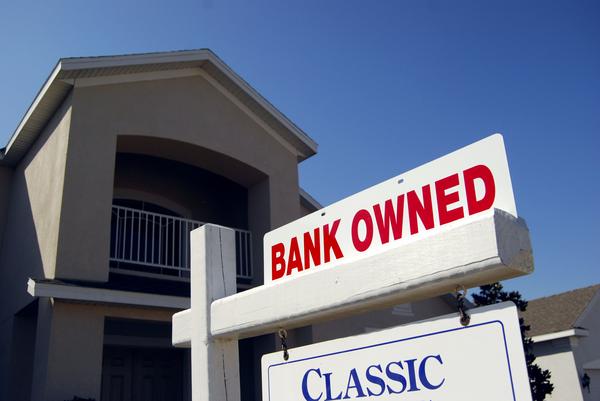Less than five years after Jose and Mary Guadalupe lost their longtime family home to foreclosure, the south Orange County couple were able to buy back their house.
“I didn’t want any other house,” said Jose, a 55-year-old truck driver formerly in Puerto Rico law enforcement. He had added a back porch, new lighting, a loft and a sprinkler system to the home they purchased in 2000. “I only wanted my house back. You don’t know how much I love this house. My children grew up here.”
The Guadalupes are among an emerging group of purchasers, called “boomerang buyers,” who are able to get back into the housing market under new, more forgiving lending guidelines.
Although the Guadalupes are unusual in buying the very home that they lost, some foreclosed owners are finding they can qualify for conventional mortgages within three years instead of the previous seven. Buyers who qualify for loans backed by the Federal Housing Administration may have to wait only one or two years.
“Foreclosures were pretty much seven years on a conventional loan, and now you can go down to three years,” said Rob Nunziata, president of FBC Mortgage. “Short sales used to be seven years, and now they are as short as two years with a 20 percent down payment and meeting the criteria.”
Though no one has tracked the number of boomerang buyers, Nunziata estimated that as many as half of Central Floridians who have had short sales or foreclosures have applied for another mortgage with FBC.
The new rules have the potential to make buying a home possible again for tens of thousands of Central Floridians. More than 110,000 homeowners in the four-country Metro Orlando area have lost their homes in a foreclosure or short sale since the start of the real-estate-market crash in 2007, according to RealtyTrac.
Last fall, the FHA revised its guidelines under its Back to Work program. Borrowers must show they fell behind on mortgage payments because of an “economic event,” such as a layoff, that stripped them of at least 20 percent of their household income. In addition, they have to show they’ve re-established their credit for at least 12 months. And they have to complete HUD-approved counseling.
The Guadalupes lost their home in 2008 after their adjustable-rate mortgage increased their monthly payments from $900 to $3,000 on the house they initially purchased for $150,000. Jose Guadalupe said their mortgage officer who made the loan on the house had assured them they were getting a fixed rate, and they failed to read the details of the home loan. He also lost his job in the downturn, although he is back to work again.
Though 26 percent of white borrowers were unaware of details of adjustable-rate mortgages, 59 percent of minority borrowers did not know or understand their loan terms, according to a 2006 Federal Reserve report.
After they lost it in foreclosure, a new owner installed updated kitchen cabinets and granite countertops. But that owner lost the house in a 2012 short sale. When it came back on the market, the Guadalupes were renting in Poinciana.
Orlando real-estate broker Jennifer Zamora and her husband and real-estate partner, John Conde, said they still recall the day Mary Guadalupe first spotted the sales sign at the house.
“We were actually at the house putting up the ‘For Sale’ sign and doing some repairs,” Zamora said. “It was her and her daughter. She said, ‘This is my house’ and started talking about all the things they had done to improve it. She was in tears.”
Priced at $150,000, the four-bedroom house drew four or five offers, including some from cash buyers. Zamora said she connected them with a lender who advised them how to pay off a credit card and take out an additional one with only minimal debt to boost their credit rating.
“We had a whole bunch of buyers who were better qualified, but this kind of tugged at your heartstrings, so we did everything we could to get them in there,” said Zamora’s husband and real-estate partner, John Conde.
Standing in his backyard, Jose Guadalupe complains about crab grass and the cost of new sod. Then he pauses, stands back and points to the palm trees rising above his roof line.
“I planted them when they were this high,” he said, pointing to his chest.
mshanklin@tribune.com or 407-420-5538
Waiting period for buyers with foreclosure, short sale
•Freddie Mac: Short sale, four years; foreclosure, seven years.
•Fannie Mae: Short sale, two years with a 20 percent down payment; foreclosure, seven years.
•FHA: Short sale or foreclosure, one to three years.
•VA: Short sale or foreclosure, three years.




